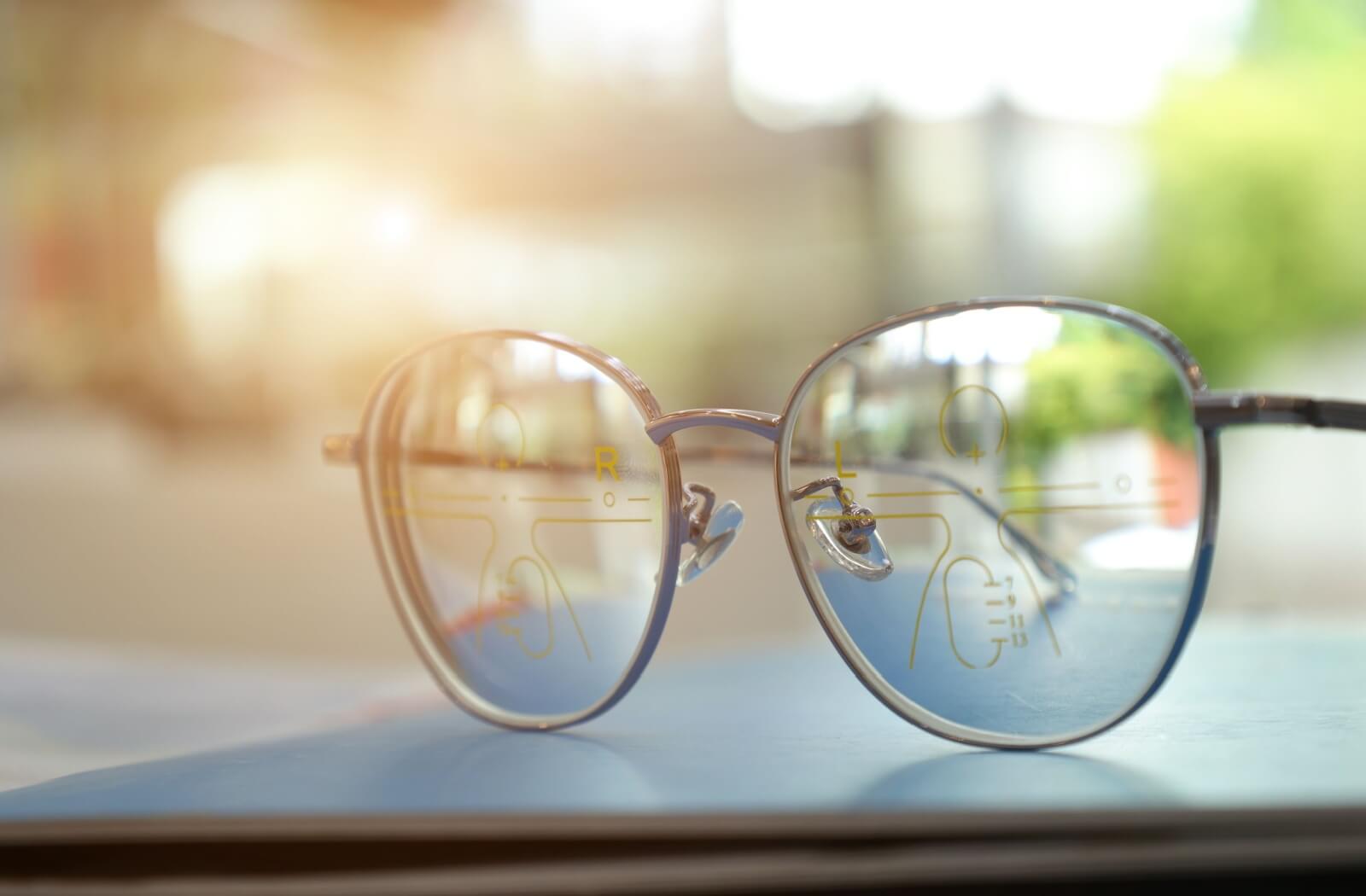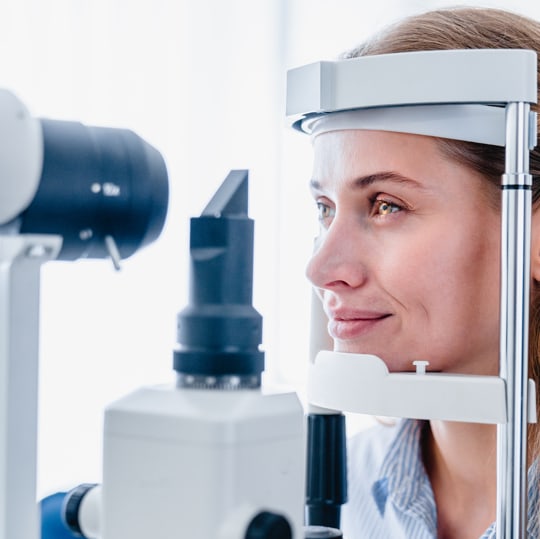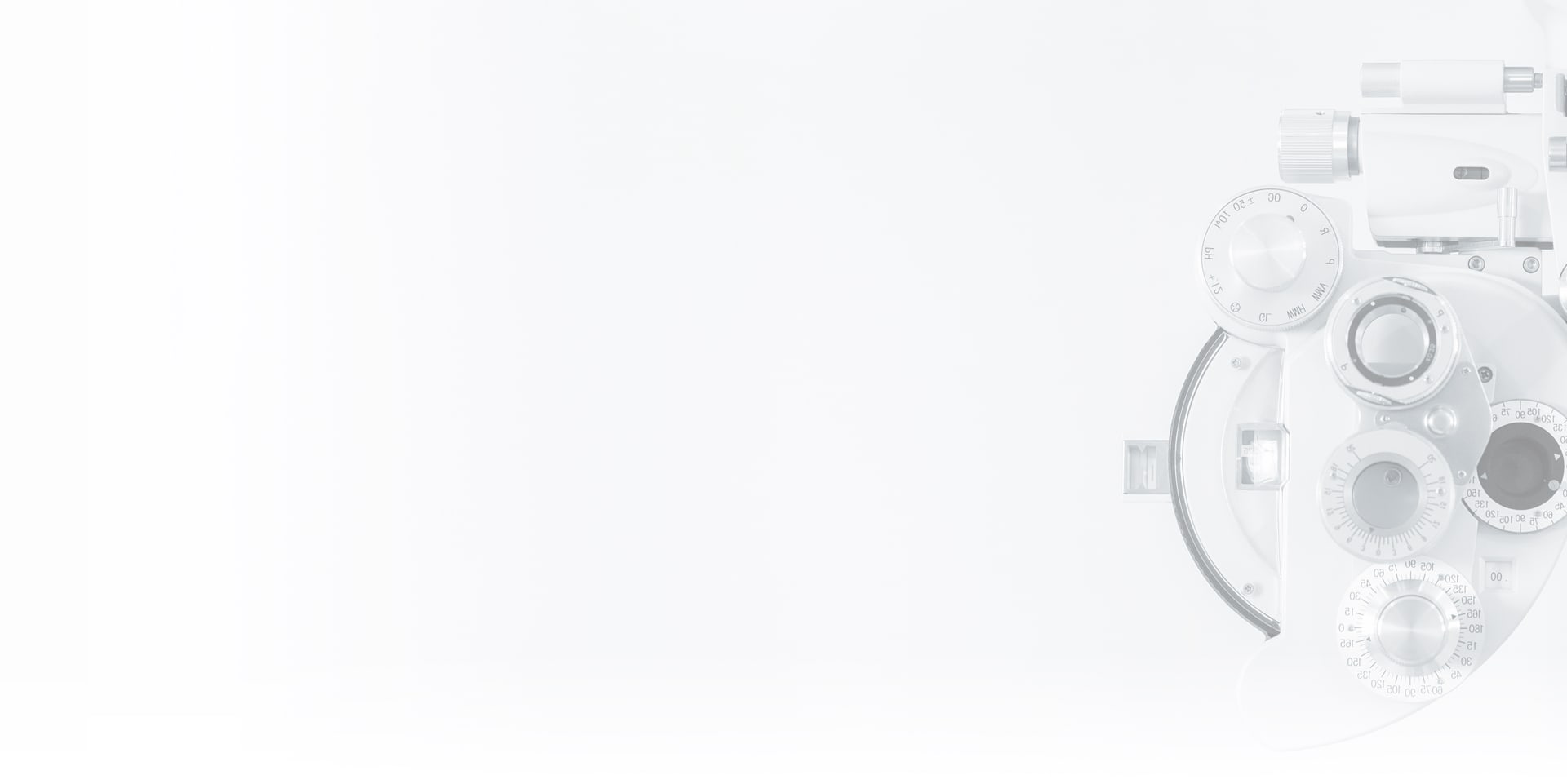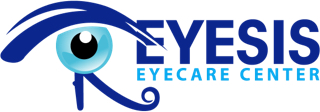You’re not alone if you squint to read your phone or struggle to make out the text on your laptop. Many adults experience presbyopia, a common condition in which our eyes lose the ability to focus on close objects. That’s why it’s always important to schedule regular eye exams!
Thankfully, progressive glasses provide a single-lens solution that can seamlessly address this challenge. Progressive glasses contain lenses with a gradual increase in magnification, allowing for vision correction for multiple distances. This provides the user with a more comfortable visual experience.
What Are Progressive Lenses?
Progressive lenses are a type of multifocal lens designed to provide a smooth, gradual transition between three different fields of vision:
- Distance Vision (the top portion of the lens) is used to see objects far away, like road signs or a theatre stage.
- Intermediate Vision (middle portion of the lens) is for tasks at arm’s length, such as working on your computer.
- Near Vision (bottom portion of the lens) is used for seeing details up close, like when reading books or using your phone.
Unlike traditional bifocals or trifocals, progressive lenses avoid the visible lines that separate each magnification zone. The result is a sleek, modern look that eliminates the jarring ‘image jump’ when transitioning between focal areas.
Are There Types of Progressive Lenses?
Not all progressive lenses are created equal. Depending on your needs, you’ll find options that cater to specific lifestyles:
- Standard Progressive Lenses: These are general-purpose lenses designed for everyday activities. They offer a balance of distance, intermediate, and near vision.
- Short-Corridor Progressive Lenses: These are ideal for people using smaller frames. They accommodate a shorter vertical height without compromising functionality.
- Office or Computer Progressives: Tailored for intermediate and near vision, these lenses are perfect for professionals spending hours at a desk or in front of a screen.
- Premium/Customized Progressive Lenses: These lenses are customized to your specific prescription, frame, and even head tilt. They provide the widest, most comfortable viewing areas.
- Outdoor and Sport Progressives: Designed for active lifestyles, these lenses offer added durability and features like UV protection or anti-glare coatings.
How Do Progressive Lenses Work?
Think of progressive lenses as a gradient of powers within one lens. The top portion helps you see at far distances, while the bottom assists with close-up tasks. The “progression” occurs seamlessly across the lens, allowing you to use different portions depending on your focus.
This smooth transition is achieved through precise design and advanced optics, offering a natural viewing experience for wearers.
Progressives vs. Single-Vision Lenses
Single-vision lenses cater to only one field of vision—distance, intermediate, or near. While these lenses work well for people with specific needs, a person may require multiple pairs of glasses for different tasks. Progressive lenses eliminate the hassle of switching between glasses, combining multiple corrections into one pair.
Progressive lenses can simplify your life if you must use reading glasses and a separate prescription for driving or computer work.
Progressives vs. Bifocals and Trifocals
Unlike progressives, bifocals and trifocals come with noticeable lines dividing the lens into distinct zones. While these lenses are effective, they come with certain drawbacks:
- Visible separation lines might feel old-fashioned or dated.
- Abrupt ‘image jumps’ when moving your eyes between different zones can be disruptive.
On the other hand, progressive lenses offer a more modern and seamless alternative by eliminating these lines and visual jumps.

How Do I Know If I Need Progressive Lenses?
If you notice any of the following, it might be time to consider progressive glasses:
- Difficulty reading fine print or texts.
- Trouble transitioning between close and distant objects.
- Over-the-counter reading glasses no longer cut it.
- Frequent eye strain during screen time or while reading.
Scheduling an eye exam with an optometrist is the first step to understanding if progressive lenses are right for you.
What Should I Know Before Choosing Progressive Lenses?
Before investing in progressive lenses, keep these tips in mind:
- Frame Selection: Opt for frames with adequate lens height to maximize the transition zones.
- Discuss Your Lifestyle: Talk to your optometrist about your daily activities to find the best lens type for your needs.
- Coatings and Extras: Consider add-ons like anti-reflective coatings or blue light filters to enhance your experience further.
Pros & Cons of Progressive Lenses
Some of the key benefits of progressive lenses include:
- Versatility: They adapt seamlessly between focal points, perfect for multitasking professionals.
- Aesthetics: No visible lines mean a sleek, modern appearance.
- Convenience: Replace multiple pairs of glasses with a single-lens solution.
- Customization: Tailored designs are available based on your specific prescription and lifestyle.
While progressive lenses offer many advantages, some potential challenges to keep in mind include:
- Adjustment Period: Some people need time to adapt to the varying focal points.
- Peripheral Distortion: Some wearers experience slight blurring at the edges of the lens.
- Cost: Due to their complexity and the technology involved, they tend to be pricier than single-vision or bifocal lenses.
Despite these potential drawbacks, many users find the benefits far outweigh the cons after the initial adjustment period.
What to Expect While Wearing Progressive Lenses
Adjusting to progressive lenses may take a few days to a week. You’ll need to retrain your eyes to learn which portion of the lens to use for different tasks. This may cause temporary discomfort in the form of slight dizziness or distortion, but this feeling should fade as your brain adjusts to the progressive lenses. Consistency is key—wearing your progressive lenses daily will help you adjust more quickly.
Progressive glasses are a game-changer for anyone managing presbyopia while juggling a busy, modern lifestyle. With their sleek design, convenience, and their ability to support multiple vision needs, progressive glasses are a great solution for anyone striving to keep life focused.
At Eyesis Eyewear, we’re dedicated to the health of your vision and ensuring that it meets your lifestyle needs. Contact us today to see if progressive glasses are a good fit for you.







































